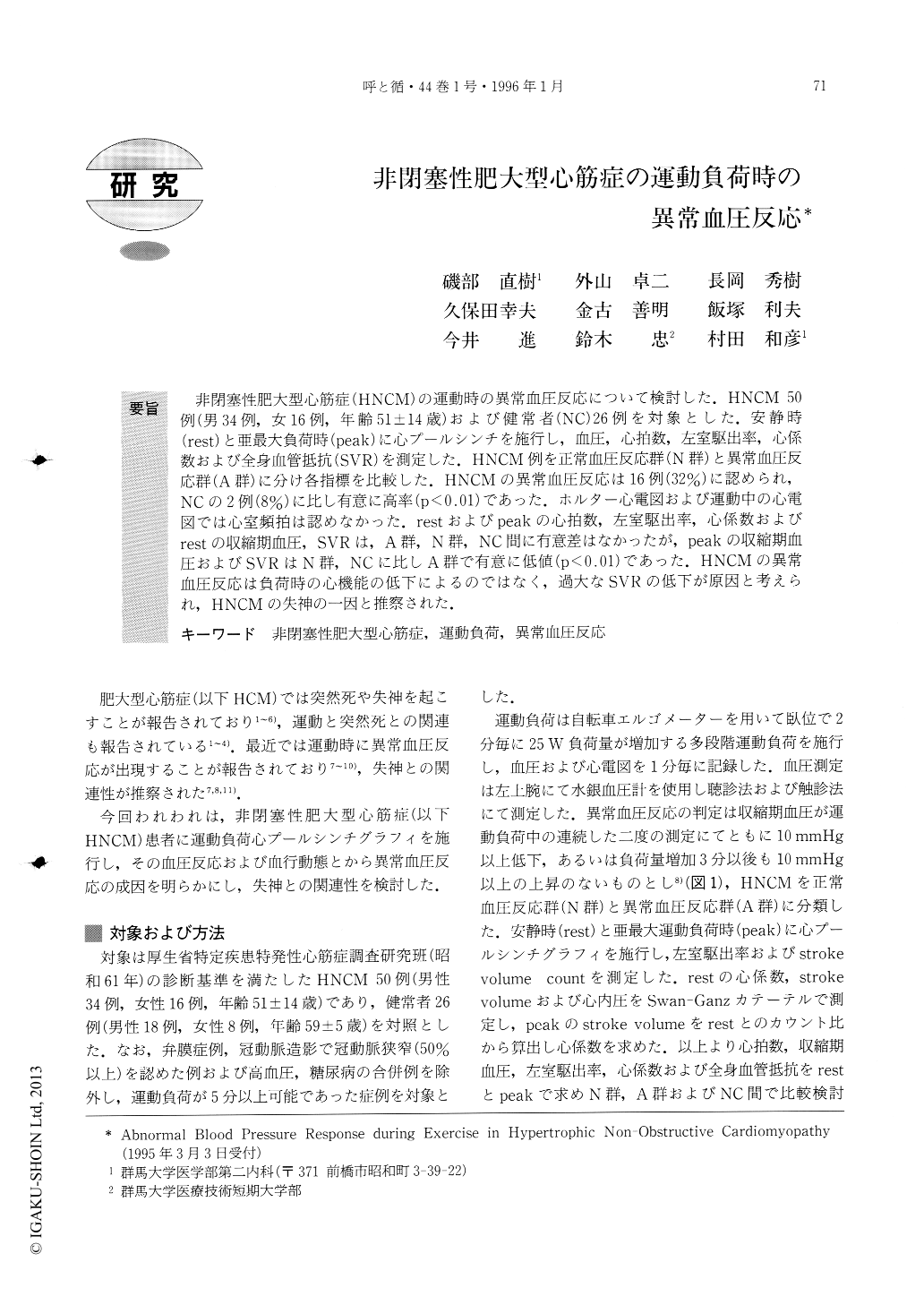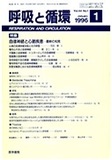Japanese
English
- 有料閲覧
- Abstract 文献概要
- 1ページ目 Look Inside
非閉塞性肥大型心筋症(HNCM)の運動時の異常血圧反応について検討した.HNCM 50例(男34例,女16例,年齢51±14歳)および健常者(NC)26例を対象とした.安静時(rest)と亜最大負荷時(peak)に心プールシンチを施行し,血圧,心拍数,左室駆出率,心係数および全身血管抵抗(SVR)を測定した.HNCM例を正常血圧反応群(N群)と異常血圧反応群(A群)に分け各指標を比較した.HNCMの異常血圧反応は16例(32%)に認められ,NCの2例(8%)に比し有意に高率(p<0.01)であった.ホルター心電図および運動中の心電図では心室頻拍は認めなかった.restおよびpeakの心拍数,左室駆出率,心係数およびrestの収縮期血圧,SVRは,A群,N群,NC間に有意差はなかったが,peakの収縮期血圧およびSVRはN群,NCに比しA群で有意に低値(p<0.01)であった.HNCMの異常血圧反応は負荷時の心機能の低下によるのではなく,過大なSVRの低下が原因と考えられ,HNCMの失神の一因と推察された.
Abnormal blood pressure response during exercise has been documented in hypertrophic non-obstructive cardiomyopathy (HNCM). To elucidate the cause of abnormal blood pressure response, 50 patients with HNCM and 26 normal control subjects underwent radionuclide ventriculography at rest and during maxi-mal symptom limited supine bicycle exercise. We assessed blood pressure response, alterations in left ventricular function and systemic vascular resistance at rest and during exercise. Cardiac index at rest was measured using a Swan-Ganz catheter and, at peak exercise, was calculated by the ratio of the peak to the rest count. Abnormal blood pressure response was defined as hypotension or poor blood pressure response during exercise. All patients underwent echocardiogra-phy and 24-hour Holter monitoring. Abnormal blood pressure response was demonstrated in 32% of HNCM patients, which was higher than the 8% of normal control subjects (p<0.01). The HNCM patients with abnormal blood pressure response had a higher inci-dence of family history of hypertrophic cardiomyopa-thy or sudden cardiac death, and a higher incidence of history of syncope. The group also included more young patients than the group in which there was normal blood pressure response (p < 0.05). Ventricular tachycardia was not found during exercise and 24-hour Holter monitoring. In HNCM patients with abnormal blood pressure response, heart rate, ejection fraction, and cardiac index were similar to those in HNCM patients with normal blood pressure response and nor-mal control subjects. The resting systolic blood pres-sure and systemic vascular resistance were similar in three groups. But in HNCM patients with abnormal blood pressure response, systolic blood pressure and systemic vascular resistance at peak exercise were significantly lower than those in the other two groups (p <0.01). These results lead us to conclude that abnor-mal blood pressure response during exercise in HNCM patients relates not to impaired left ventricular func-tion, but to the excessive reduction of systemic vascular resistance. The syncope of HNCM patients may relate to the excessive reduction of systemic vascular resis-tance.

Copyright © 1996, Igaku-Shoin Ltd. All rights reserved.


